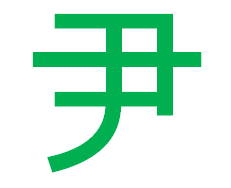 The hotly contested trial between Oracle and Google has produced an interesting and controversial decision. The result is what happens when attempting to ask a non-technical person to decide the answer to a technical issue. Although a best attempt was made, the decision is not without issues.
The hotly contested trial between Oracle and Google has produced an interesting and controversial decision. The result is what happens when attempting to ask a non-technical person to decide the answer to a technical issue. Although a best attempt was made, the decision is not without issues.
We have yet to see the definitive written decision and the devil will be in the details. The decision is likely narrowly written and will [hopefully] be without the broad interpretation which is currently being aired.
Google ‘may’ have escaped this time around, but ethically they have failed.
Can an API be copyrighted. The correct answer is YES. If the answer is NO, then the question is wrong.
The specific case of JAVA may present some conditions where the API copyright is questionable, but the basis is fairly clear [until muddied by legalities]. JAVA was conceived as a way of creating a level field and consistent field for programming applications which could be used over all platforms. The machine behind the API’s has to meet a set of tests to ensure 100% compatibility. Anyone can write such a machine and it must be able to pass all tests to be called a Java Machine. But who can do that? Who provided the framework that made it possible? In this case it was SUN. SUN provided the tools to ensure conformity and issued licenses as needed to those wishing to use those API’s to produce machines which implemented the JAVA standards. SUN also allowed anyone to use the API’s without license but the result could not be called JAVA. Fair enough.
The other side of the coin is that users are free to program applications using the API with the assumption that the application will perform according to the specification of the API, regardless of who provides the machine and what platform is used to run the application. There is no charge for use of the API on this respect.
By ruling that that the API’s cannot be copyrighted, the decision creates a situation where there is no longer a guarantee that writing an application to the JAVA API’s is actually going to perform as expected. The specific case of Google and Android is limited in scope and probably presents a minimal problem [at the moment].
What happens tomorrow when the next “Google” comes along and does a new “90+%” implementation of the API’s and calls it JAVA. We have just split the JAVA community into three parts – SUN JAVA, ANDROID JAVA and NEWGEN JAVA, and the problem explodes.
We already see the problems of an uncontrolled ANDROID although that is not technically a JAVA issue.
What should happen in this case is that the language which Google has created should be called ANDROID [or some other name]. It can be promoted as being “similar” to JAVA, but cannot be called JAVA. Problem solved. No Copyright issue involved. That was the decision which should have happened.
Coming back to the Copyright Issue. If I write a new piece of work which is meant to be used by the community in order for that new work to be used, I must publish the interface specification [or API]. Without that, my work is useless. In order to benefit from my work, I need to be assured that my work is protected from being copied. And that protection is in making sure that the interface specification [API] cannot be hijacked by someone else. The work is my creation. The API is my creation and of necessity must be published in order to be useful. Copyrighted.
If I then wish to have my work more widely distributed, then I can decide to LICENSE my work to others for the purpose of getting a wider distribution. I allow others to use my API’s to create a Legal Copy of my work and users can choose to use my work or another creation of the work with the 100% guarantee that the results will be identical. My COPYRIGHT is preserved through the LICENSE process. I can choose to charge for the LICENSE, or I can be very generous and issue a free-of-charge license with restrictions and conditions. That is my decision to make.
The decision in the Google-Oracle case is troubling. The floodgates for unrestricted pirating of intellectual property has just been unleashed. If I were a member of the RIAA I would be choking. The Motion Picture Producers even more so.
But we can argue “fair use”. Another joke. As soon as the “fair use” involves essentially pirating followed by worldwide distribution and “fair use” has an entirely new meaning.
One can hope that a detailed reading of the Google-Oracle decision is a very very constrained and limited effect decision. None-the-less it is a decision based on the wrong question. And that problem lies squarely in Oracle’s lap.